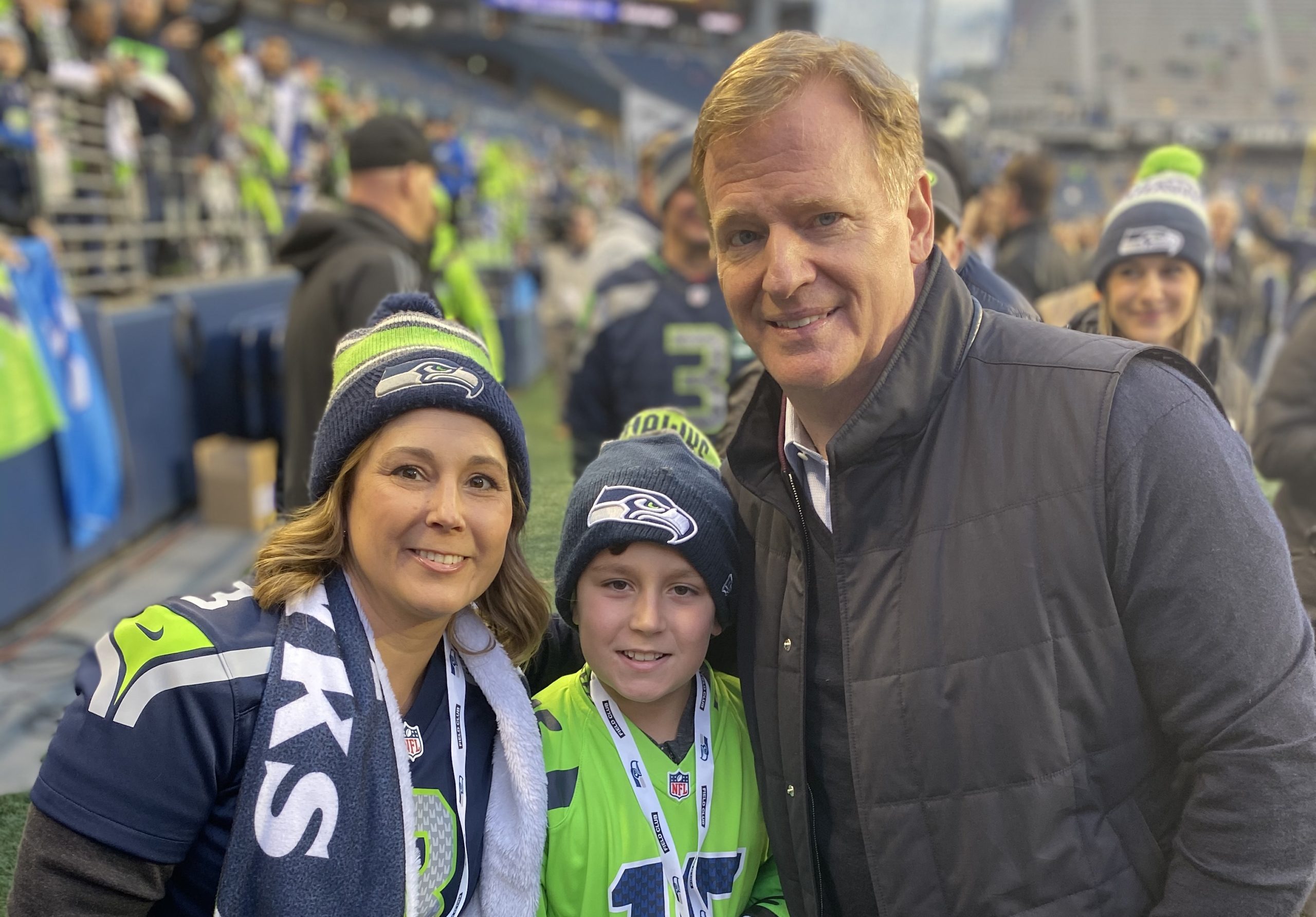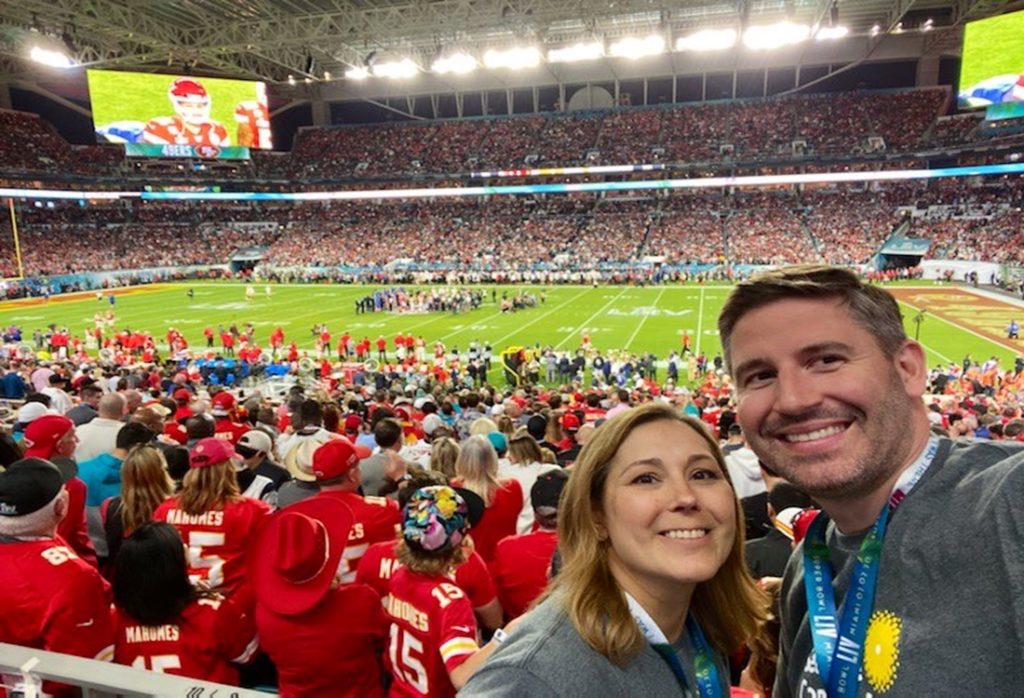
|
Miami, FL. This year’s top Super Bowl Challenge fundraiser is Retired Lt. Col. Angela Downs from Seattle, Washington. Angie, a mother of two who was diagnosed with Stage IV lung cancer just over a year ago, represented Team Draft at Super Bowl 54 and the 29th Annual Taste of the NFL.
A combat veteran who retired from the military after serving 21 years in the Army, including a 2006 deployment to Iraq during Operation Iraqi Freedom, Angie has always been a fighter. And she is bringing the lessons she learned in the military to the fight against lung cancer: “My military experience definitely helped me to know that I need to take the battle day by day, and that it takes a team. No one can go it alone.” “After much thought and research, we teamed up with Team Draft,” Angie says. “Team Draft has done an amazing job using its relationship with the NFL to promote the need for lung cancer research and dispel the stigma surrounding the disease,” she explains. In addition to her participation the Super Bowl Challenge, Angie has also been working with Team Draft to support its longstanding relationship with the Department of Veterans Affairs as veterans are disproportionately impacted by lung cancer.
While Angie says she is “thrilled to have won the Super Bowl Challenge,” for her, being able to stand up for other lung cancer survivors is most important. As she explains, “I’m very excited to attend the big game as a representative of all those battling lung cancer so we can increase awareness of this horrible disease.”
90% of the funds Angie raised during the Challenge will go to the Seattle Cancer Care Alliance/Fred Hutch Research Center who Angie credits not only with prolonging her life, but saving the life of her father, a leukemia survivor. “Knowing that these research dollars could have a direct impact on survival is extremely important to us,” says Angie.
Team Draft was founded by former NFL linebacker and internationally-recognized health advocate, Chris Draft, and his late wife, Keasha, on November 27, 2011—their wedding day. At the time, Keasha, a never-smoker, was battling Stage IV Lung Cancer after being diagnosed with the disease in December 2010. Despite the diagnosis and knowing the long odds they faced, Chris and Keasha decided to fight back, and standing side-by-side, they launched Team Draft at their wedding. Keasha died one month later.
Since its founding, Team Draft has been dedicated to using its unique platform to raise lung cancer awareness and research funding through its Campaign To Change The Face Of Lung Cancer. And the centerpiece of that Campaign is Team Draft’s annual Lung Cancer Survivors’ Super Bowl Challenge. As Draft explains, “the Super Bowl Challenge gives us a unique opportunity to use the overwhelming media coverage surrounding the Super Bowl to raise lung cancer awareness on an international level.”
“With the game as a backdrop,” says Draft, “we give our survivor-advocates a world-wide platform to share their stories, which we can then use to weave a broader narrative about the state of lung cancer and the hope that now exists for those battling the disease.” And Team Draft’s efforts are paying off. “The Challenge achieves some amazing things in terms of public awareness and changing perceptions about lung cancer,” says Dr. Ross Camidge, Director of Thoracic Oncology at Colorado University Cancer Center.
In addition to raising critical public awareness, the Super Bowl Challenge also raises funds for lung cancer organizations and treatment centers across North America. And because Team Draft’s National Campaign has always been about “we” and not “me,” just as Keasha intended, participating survivor-advocates who raise more than $5,000 during the Super Bowl Challenge may commit 90% of the funds they raise to a lung cancer organization or cancer center of their choice with the remaining 10% going to support Team Draft and its mission. Of this aspect of the Super Bowl Challenge, Dr. Camidge says, “you need somebody working on the national level. You need somebody working on the local level. Everybody wins.”
As Draft points out, “anybody can get lung cancer.” “The disease doesn’t care where you live, but your zip code often determines the quality of care you receive,” he explains. “In football, we understand the importance of the home field advantage. By allowing survivors to direct where funds go, we’re giving people the opportunity to fight for better cancer treatment in their communities—to give themselves and their neighbors the home field advantage,” he says.

|